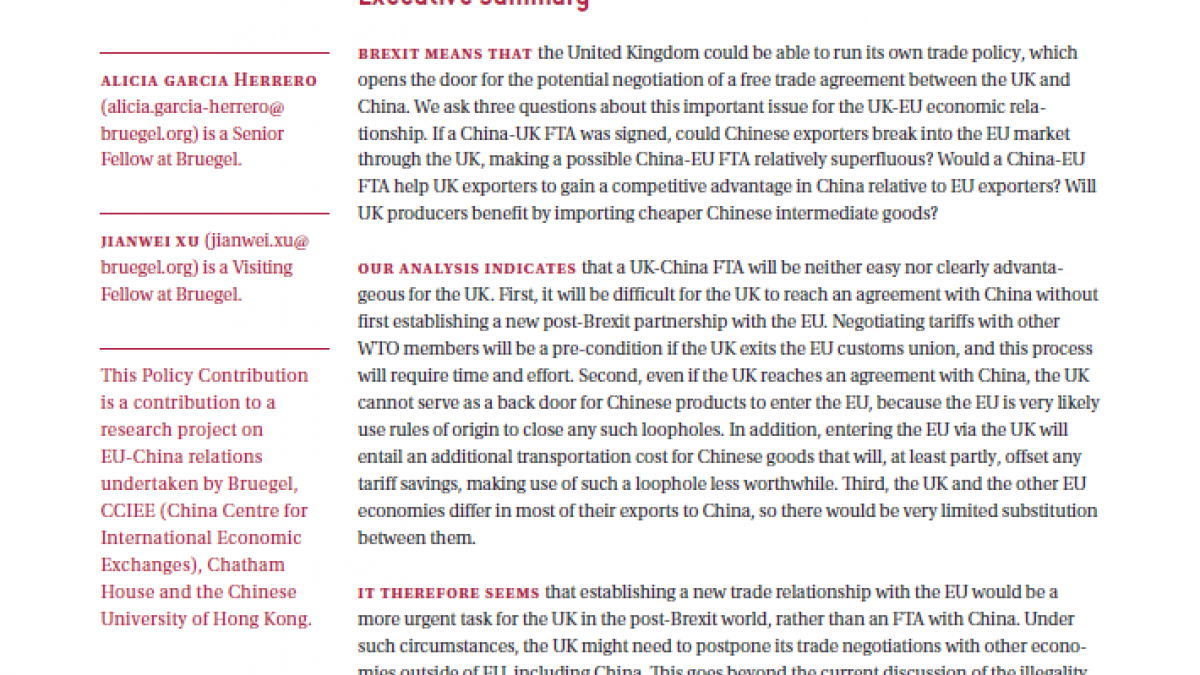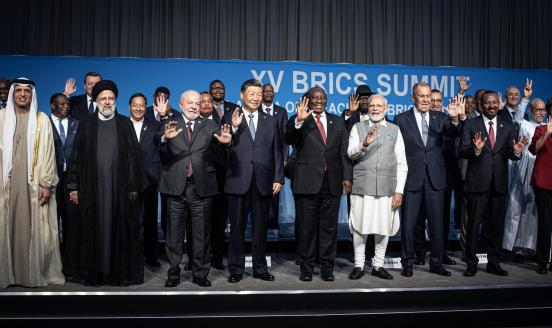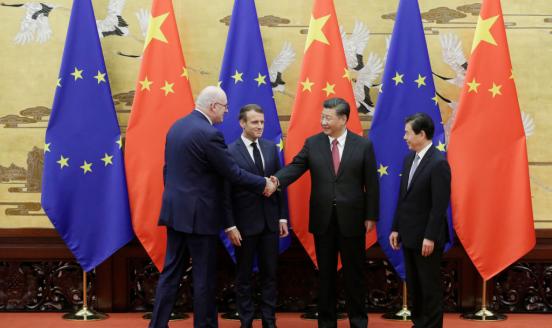What consequences would a post-Brexit China-UK trade deal have for the EU?
A China-UK free trade agreement has been extensively discussed since the UK’s vote for Brexit. Many supporters of Brexit argue that the UK’s regained

Brexit means that the United Kingdom could be able to run its own trade policy, which opens the door for the potential negotiation of a free trade agreement between the UK and China. Alicia Garcia-Herrero and Hianwei Xu show that a UK-China FTA will be neither easy nor clearly advantageous for the UK:
- It will be difficult for the UK to reach an agreement with China without first establishing a new post-Brexit partnership with the EU. Negotiating tariffs with other WTO members will be a pre-condition if the UK exits the EU customs union, and this process will require time and effort.
- Even if the UK reaches an agreement with China, the UK cannot serve as a back door for Chinese products to enter the EU, because the EU is very likely use rules of origin to close any such loopholes.
- The UK and the other EU economies differ in most of their exports to China, so there would be very limited substitution between them.
It therefore seems that establishing a new trade relationship with the EU would be a more urgent task for the UK in the post-Brexit world, rather than an FTA with China. Under such circumstances, the UK might need to postpone its trade negotiations with other economies outside of EU, including China.
This goes beyond the current discussion of the illegality of the UK starting to negotiate trade deals before it leaves the EU. The issue is whether it makes economic sense for the UK to do so, and the answer is no. In fact, the more the UK reaches an independent favourable trade agreement with China after Brexit, the harder it will be for the UK to strike a good deal with EU.
In the meantime, it is also urgent for the UK to negotiate with the main WTO members on tariffs, because outside the EU, the UK might not participate in the EU schedule of concessions. The best strategy for the UK would be to negotiate with the other WTO members with the EU-based tariffs as a starting point, to avoid negotiating over terms separately and also to maintain a close relationship with the EU.



